© All Photos: Alan Mercer Make-up: Rudy Calvo
Merry Clayton is thriving living vocal royalty beyond compare. A short list of the legends who have called upon Grammy-nominee Clayton’s vocal power and grace includes Ray Charles, Aretha Franklin, The Rolling Stones, Quincy Jones, Etta James, Barbara Streisand, Michael Jackson, Bob Dylan, Bobby Womack, Art Garfunkel, Tina Turner, Tom Jones, Diana Ross, Leon Russell, The Jazz Crusaders and Elvis Presley. From Hollywood to Broadway and around the world, Merry brings audiences and peers to their feet with awe and admiration. In 2013, much of her amazing life story informs the award-winning background singers’ documentary, ‘20 Feet From Stardom.’ This encore in the spotlight coincides with the long-overdue release of Sony Legacy’s ‘The Best of Merry Clayton,’ celebrating her golden years on Ode Records.
Born in New Orleans, Louisiana and raised up on the good book and gospel music in her father’s New Zion Baptist Church in New Orleans. Parishioners used to call her “Little Haley” because she sounded like a mini-Mahalia Jackson. Merry began her recording career in 1962 at the age of fourteen, singing ‘Who Can I Count On? (When I Can't Count On You)’ as a duet with Bobby Darin on his album ‘You're The Reason I'm Living.’ A year later, she recorded the first version of ‘It's In His Kiss’ arranged and conducted by the legendary Jack Nitzsche. Her early career included performances with artists including Ray Charles, as one of The Raelets, Pearl Bailey, and Burt Bacharach. When Merry left Mr. Charles, she formed the group Sisters Love. She contributed vocals to Donald Cammell and Nicolas Roeg's 1968 film ‘Performance.’ Merry also sang backup on several tracks from Neil Young's debut album ‘Neil Young,’ originally released in 1968.
She is best known for her 1969 performance in a duet with Mick Jagger on the Rolling Stones song ‘Gimme Shelter.’ Merry also sang backing vocals on Lynyrd Skynyrd's ‘Sweet Home Alabama.' Merry sang backup vocals for Tom Jones, Joe Cocker ‘Feelin' Alright’ and Carole King. She also originated the role of the Acid Queen in the original 1972 London production of The Who's ‘Tommy.’ As an actress, she co-starred with Ally Sheedy in the 1987 film ‘Maid to Order,’ and played Verna Dee Jordan in the final season of ‘Cagney & Lacey.’
In 1970 the legendary Lou Adler signed Merry to his ‘Ode Records’ label and her debut solo album, ‘Gimme Shelter,’ her first of three for the company. Hollywood-based Ode, located on the famed A&M Records lot, was a family affair where all artists participated on each other’s records. Her version would be the first of five singles under her name to crack the Billboard Hot 100. Merry received a Grammy nomination in 1972 for Best Female R&B Vocalist for ‘Oh No, Not My Baby.’ She continued to release solo albums throughout the next decade, notching several R&B singles. Merry performs a live version of what has been deemed the Black National Anthem ‘Lift Every Voice and Sing,’ on the soundtrack for the 1970 Robert Altman film ‘Brewster McCloud.’
Merry sang ‘You're Always There When I Need You,’ the main title for 1980's ‘The Nude Bomb,’ the first ‘Get Smart’ movie, which starred Don Adams. She also sang the song ‘Yes’ that was in the 1987 film ‘Dirty Dancing,’ and featured on the soundtrack album. This tune became her biggest hit to date to crack the Billboard Hot 100. She also recorded backing vocals for and sang the infamous 'Man with the Golden Gun' bridge on Tori Amos' 1994 hit, ‘Cornflake Girl.
Merry Clayton was married to jazz artist Curtis Amy until his death in 2002. As well as leading his own bands and recording albums under his own name, Curtis also did session work and played the solos on several recordings, including The Doors song ‘Touch Me,’ Carole King's ‘Tapestry,’ and Lou Rawls' first albums, ‘Black and Blue’ and ‘Tobacco Road,’ as well as working with Marvin Gaye, Tammi Terrell and Smokey Robinson.
Merry recently reunited with Carole King for two unforgettable events: singing ‘Way Over Yonder’ as a duet at ‘You’ve Got a Friend: A Celebration of Carole King and Her Music’ (a charity for The Painted Turtle Foundation benefitting children with disabilities at the Dolby Theatre in Hollywood) and at the memorial service for Gil Friesen, friend, A&M Chairman and producer of ‘20 Feet From Stardom’ with Carole accompanying her and singing background.
2013 finds Merry back on the big screen in the documentary ‘20 Feet From Stardom’ which follows the careers of several major background singers. This crowd favorite film opened the Sundance Film Festival to a standing ovation and is scheduled for release on June 14. This crowd favorite film opened the Sundance Film Festival to a standing ovation and is scheduled for release in early summer by RADIUS/TWC. Merry also has three cuts on the original soundtrack recording of ‘20 Feet From Stardom.’
with '20 Feet From Stardom' Producer Gil Friesen and Director Morgan Neville
AM: Merry, your career has come full circle. Are you feeling a bit like a new artist again?
MC: Yes, I really am. It’s another time and it’s time for me to get on my good foot. In other words it’s time for me to snap back to myself. That’s what this film has done. You know I lost Curtis, my husband. We were married for thirty two years, and I knew him for thirty five years. We were in love the whole time. I lost him suddenly and I had to go through the loss. It was the hardest thing I ever had to go through in my life. I was in a dream and I asked God to please wake me up. I didn’t want to be in this dream anymore. That’s the way it felt.
AM: Where did you find the strength to get through it?
MC: God. My faith. The Lord is what brought me back honey. It took the counciling of my family and my father and people who really, really loved me. Our friend Rudy Calvo helped me a lot. He was over at my house the night Curtis died and helped me through it all. He told me I could grieve but I had stuff to do. Then Lou Adler called and said let us know when you’re ready.
AM: All your albums are out right now?
MC: Yes, they have been released as imports from Germany and Japan.
AM: You have a new best of album coming out to don’t you?
MC: Yes it will be out on June 25, right around the time of the film. There is so much going on right now. I just got back home.
AM: You’re not even home more than two or three days at a time now are you?
MC: I’m pretty much gone until the film opens.
AM: Are you a big part of the movie?
MC: Yes, I’m the mouth in the movie. They do a part on me and one on Darlene Love, Lisa Fischer, Claudia Lennear and Tata Vega. They interviewed a lot of people but I am the chatterbox in the movie. I just tell my story. Lou and Mick Jagger talk about me. They play a tape where they single out Mick’s and my vocals on 'Gimme Shelter.’
AM: I’ve heard it. The video is on Youtube.
MC: Mick tells the story about how I came to the session. I came in and did the vocals three times and I was gone and thus history. I was at home with my husband being very pregnant. I did not want to get up. Jack Nitzsche called and asked Curtis to let me do it. I went to the studio in my pajamas, a mink coat and those little slippers that have the fur on the top and the little heal. Can you imagine?
Singing at the Mint in Los Angeles
AM: Did you know all the other women in the film?
MC: I met Lisa Fischer at Sundance for the first time. We fell in love with each other right away. She told me if it wasn’t for me she wouldn’t be doing this. She said it on stage at Sundance. I thanked Darlene for paving the way for me as a kid and taking me under her wing. Our film opened the festival this year.
AM: You must have gotten a lot of attention in 1969 when ‘Gimme Shelter’ came out. Is it like that again now?
MC: It’s much better now. People are asking, “Who’s that woman?” Then they go, “It’s that Merry Clayton.” Then they tell me how they’ve listened to me for years. They couldn’t put a face with me but they knew my voice. They tell me how I’ve helped them get through their stuff.
AM: How do you react to these words?
MC: I’m always so humbled. I thank them so much and I really mean that.
AM: Will there be a tour to go along with the film?
MC: That’s what they want to do. They want us to tour this summer. We just have to get us all together. Judith Hill has been on 'The Voice’ this year. Tata is touring with Elton John and Lisa is with the Rolling Stones. Even if Darlene, Judith and me could do it and bring in Lisa and Tata when they can, that would be incredible. Whoever God clears the way for are the people who need to be there.
AM: That’s the best way to view life.
MC: I’m not wondering anything. It’s in the Lord’s hands. Whoever he wants to be there will be there. I do know one thing. I’m going to be there. I’m feeling wonderful.
AM: They must be treating you right.
MC: Oh yes, it’s first class all the way. That’s the only way I’d do all this. The producers will sit in the back of the plane, but they put me in first class every time and that feels really good!




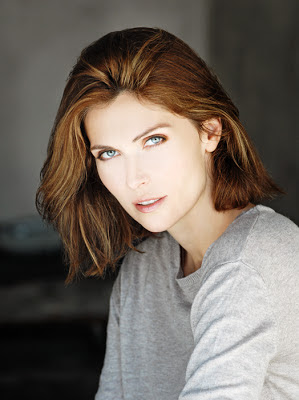
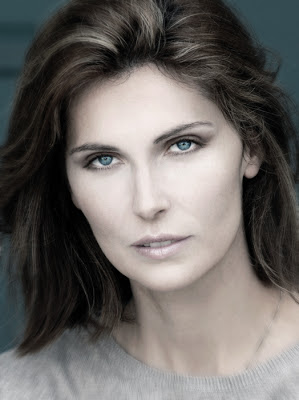
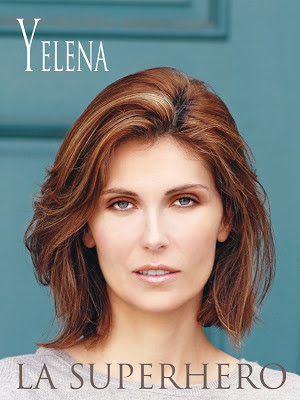
















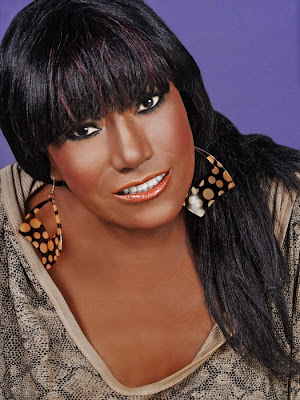





.jpg)
.jpg)
.jpg)
.jpg)
.jpg)
.jpg)
.jpg)
.jpg)
.jpg)





.jpg)

.jpg)
.jpg)
.jpg)
.jpg)
.jpg)
.jpg)
.jpg)
.jpg)

.jpg)
.jpg)
.jpg)
.jpg)
.jpg)
.jpg)
.jpg)
.jpg)

.jpg)
.jpg)
.jpg)
.jpg)


















.jpg)
.jpg)
.jpg)
.jpg)
.jpg)






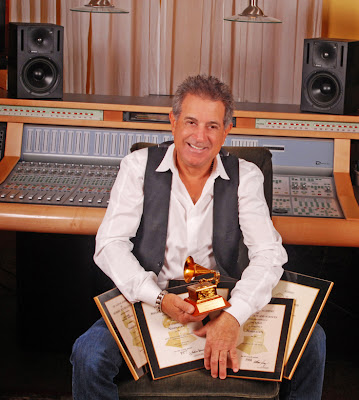





.jpg)
.jpg)
.jpg)
.jpg)
.jpg)
.jpg)